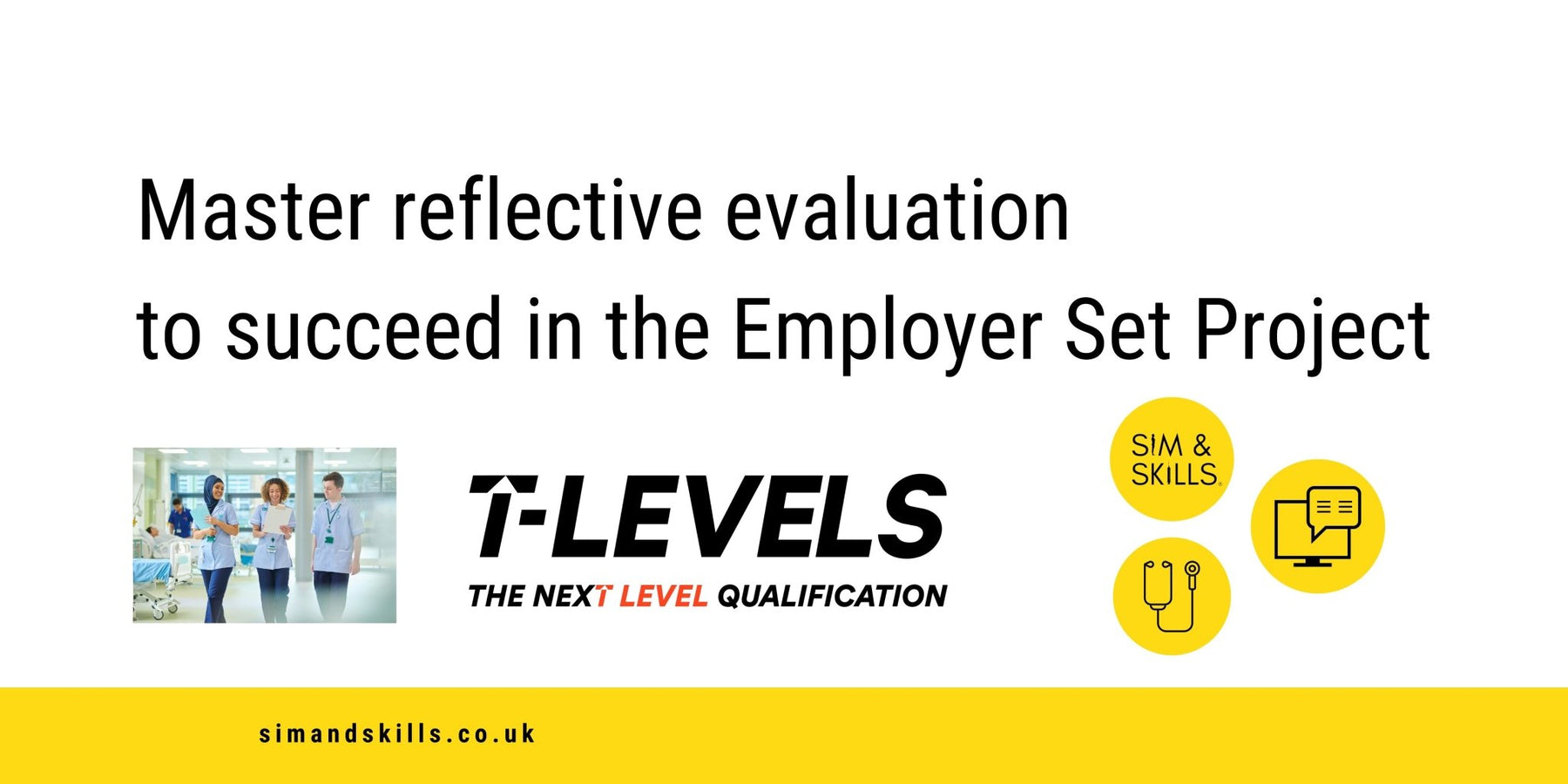01246 944966
hello@simandskills.com
01246 944966

The Employer Set Project is a T Level Health assessment students complete at the end of Year 1.
It is 30% of the Year 1 grade and students need to demonstrate the Core Skills.
Reflective evaluation is a Core Skill and the final task in the assessment.
In previous years, it's the task where students have dropped marks.

Students need to write a reflective account of their role play and healthcare plan in the ESP assessment.
To develop this skill they need to:
This is a skill that will need to be developed over time, with students given lots of opportunities to reflect on their role play and analyse what they did well and what can be improved.
A proven method of improving reflective skills in Healthcare Simulation is Debriefing.
Debriefing is the intentional discussion following the simulation experience.
It allows students to gain a clear understanding of their actions and
thought processes.
Simulation debriefing is one of the most effective components of Simulation Based Education.
Debriefing is the cornerstone of the learning experience in the medical simulation setting.
Students will need to feel confident being recorded and watching back their own ‘performance’. At first students might feel embarrassed and will almost certainly get the giggles.
An environment of trust and respect will need to be built with your cohort so that students get used to watching themselves on screen and reflecting on what they did. This is often referred to as creating an environment of Psychological Safety.
Once students are used to watching themselves, you can start to ‘debrief’ the session.
This is an opportunity to look at your students’ communication skills. Can they:
Reflect together and discuss what went well and what they could improve next time.
Then ask your students to write up their reflective accounts using strategies such as Kolb's Experiential Learning Cycle or Gibb's Reflective Cycle.

An Audio & Video debriefing system makes this reflective process simple. SIMStation Go is a mobile debriefing system that's easy to use and quick to set -up.
SIMStation Go comes with two cameras to fully capture the reactions of your students during their role play scenarios.
The high-quality microphone means you can clearly hear the discussions taking place.
The easy-to-use software allows you to bookmark the recording timeline at key points, to quickly return to during playback and reflection time.
You can save and store your recordings as MP4 files so they meet the NCFE requirements and are ready to upload.
Take a closer look at SIMStation Go.
Looking for more product solutions for teaching T-Level Health? Our new Product Guide features equipment matched to the curriculum.
NCFE Employer Set Project Core Skills Provider Guide
Leave a comment